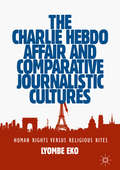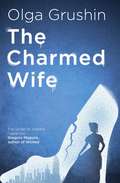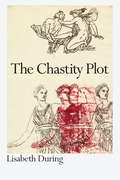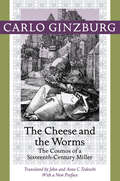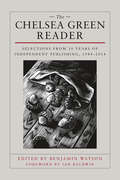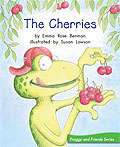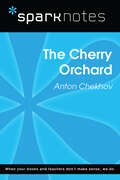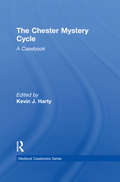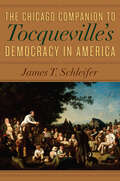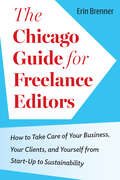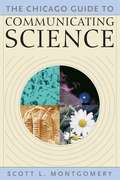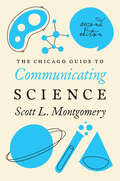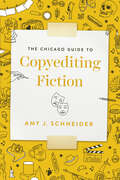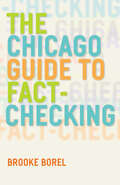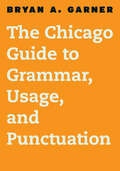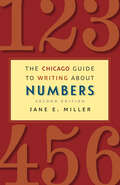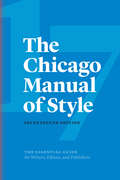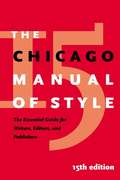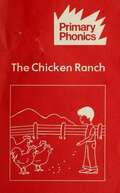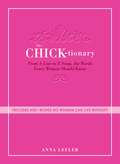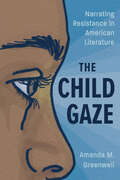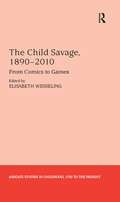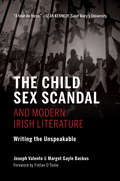- Table View
- List View
The Charlie Hebdo Affair and Comparative Journalistic Cultures: Human Rights Versus Religious Rites
by Lyombe EkoThe Charlie Hebdo terrorist attack of January 7, 2015 shook French journalism to the core and reverberated around the world, triggering a cascade of responses from journalists, media outlets, cartoonists and caricaturists from diverse geographies of freedom of expression and journalistic cultures. This book is a multifaceted case study that describes and explains sameness and difference in diverse journalistic conceptualizations of the Charlie Hebdo affair from a comparative, international perspective. It explores how different journalistic traditions, cultures, worldviews and styles conceptualized and reacted to the clash between freedom of expression and respect for religious sentiments in the context of terrorism, where those sentiments are imposed on the media and secular societies through intimidation, coercion and violence. The book analyzes the political and cultural clashes between the core human right of freedom of expression, and rite of respect for religious sentiments, which is situated on the outer periphery of the human right of freedom of religion. It also examines how media outlets, editors, and cartoonists from different politico-cultural contexts and journalistic cultures in Africa, Asia, Europe, the Middle East, and North and South America, addressed the delicate issue of Mohammed cartoons in general, and the problem of (re)publication of the controversial Charlie Hebdo Je Suis Charlie Mohammed cartoon, in particular.
The Charmed Wife: 'Does for fairy tales what Bridgerton has done for Regency England' (Mail on Sunday)
by Olga Grushin*An Oprah Magazine Most Anticipated Book of 2021**A Woman & Home Top Four Literary Read**A lovereading.co.uk Star Book* And they lived happily ever after . . . didn't they?Cinderella married the man of her dreams - the perfect ending she deserved after diligently following all the fairy-tale rules. Yet now, two children and thirteen-and-a-half years later, things have gone badly wrong. One night, she sneaks out of the palace to get help from the Witch who, for a price, offers love potions to disgruntled housewives. But as the old hag flings the last ingredients into the cauldron, Cinderella doesn't ask for a love spell to win back her Prince Charming. Instead, she wants him dead. Endlessly surprising and wildly inventive, The Charmed Wife is a sophisticated literary fairy tale for the twenty-first century that weaves together time and place, fantasy and reality, to conjure a world unlike any other. Nothing in it is quite what it seems, and the twists and turns of its magical, dark, swiftly shifting paths take us deep into the heart of romance, marriage and the very nature of storytelling.'Dark and dreamy. Inside the plot, magic comes and goes. But inside the reader, it's all magic - all of us happily caught in Grushin's hypnotic spell.' - Karen Joy Fowler, author of We Are All Completely Beside Ourselves and The Jane Austen Book Club'Fall under its charms, I dare you' - Gregory Maguire, author of WickedA powerful, provocative and quite wonderful modern literary fairy tale. I danced through the deep dark magic of The Charmed Wife - long live the fairy tale that lives beyond "happily ever after".' - lovereading.co.uk'Surprising, darkly comedic and enchanting' - CNN'Genre-bending and darkly comic, Grushin's fourth novel is a weird and wonderful triumph.' - Oprah Magazine
The Chastity Plot
by Lisabeth DuringIn The Chastity Plot, Lisabeth During tells the story of the rise, fall, and transformation of the ideal of chastity. From its role in the practice of asceticism to its associations with sovereignty, violence, and the purity of nature, it has been loved, honored, and despised. Obsession with chastity has played a powerful and disturbing role in our moral imagination. It has enforced patriarchy’s double standards, complicated sexual relations, and imbedded in Western culture a myth of gender that has been long contested by feminists. Still not yet fully understood, the chastity plot remains with us, and the metaphysics of purity continue to haunt literature, religion, and philosophy. Idealized and unattainable, sexual renunciation has shaped social institutions, political power, ethical norms, and clerical abuses. It has led to destruction and passion, to seductive fantasies that inspired saints and provoked libertines. As During shows, it should not be underestimated. Examining literature, religion, psychoanalysis, and cultural history from antiquity through the middle ages and into modernity, During provides a sweeping history of chastity and insight into its subversive potential. Instead of simply asking what chastity is, During considers what chastity can do, why we should care, and how it might provide a productive disruption, generating new ways of thinking about sex, integrity, and freedom.
The Cheese and the Worms: The Cosmos of a Sixteenth-Century Miller
by Carlo GinzburgThe now-classic tale of a sixteenth-century miller facing the Roman Inquisition.The Cheese and the Worms is an incisive study of popular culture in the sixteenth century as seen through the eyes of one man, the miller known as Menocchio, who was accused of heresy during the Inquisition and sentenced to death. Carlo Ginzburg uses the trial records to illustrate the religious and social conflicts of the society Menocchio lived in. For a common miller, Menocchio was surprisingly literate. In his trial testimony he made references to more than a dozen books, including the Bible, Boccaccio's Decameron, Mandeville's Travels, and a "mysterious" book that may have been the Koran. And what he read he recast in terms familiar to him, as in his own version of the creation: "All was chaos, that is earth, air, water, and fire were mixed together; and of that bulk a mass formed—just as cheese is made out of milk—and worms appeared in it, and these were the angels."Ginzburg’s influential book has been widely regarded as an early example of the analytic, case-oriented approach known as microhistory. In a thoughtful new preface, Ginzburg offers his own corollary to Menocchio’s story as he considers the discrepancy between the intentions of the writer and what gets written. The Italian miller’s story and Ginzburg’s work continue to resonate with modern readers because they focus on how oral and written culture are inextricably linked. Menocchio’s 500-year-old challenge to authority remains evocative and vital today.
The Chelsea Green Reader: Selections from 30 Years of Independent Publishing, 1984-2014
by Edited by Ben WatsonChelsea Green, the Vermont-based independent publisher, has always had a nose for authors and subjects that are way ahead of the cultural curve, as is evident in this new anthology celebrating the company’s first thirty years in publishing.The more than one hundred books represented in this collection reflect the many distinct areas in which we have published–from literature and memoirs to progressive politics, to highly practical books on green building, organic gardening and farming, food and health, and related subjects–all of which reflect our underlying philosophy: "The politics and practice of sustainable living." The Chelsea Green Reader offers a glimpse into our wide-ranging list of books and authors and to the important ideas that they express. Interesting and worth reading in their own right, the individual passages when taken as a whole trace the evolution of a highly successful small publisher–something that is almost an oxymoron in these days of corporate buyouts and multinational book groups. From the beginning, Chelsea Green's books were nationally recognized, garnering positive reviews, accolades, and awards. We’ve published four New York Times bestsellers, and our books have set the standard for in-depth, how-to books that remain relevant years–often decades–beyond their original publication date."Chelsea Green was born from a single seed: the beauty of craft. Craft in writing and editing, in a story well told, or a thesis superbly expressed," writes cofounder and publisher emeritus Ian Baldwin in the book's foreword. Today, craft continues to inform all aspects of our work–design, illustration, production, sales, promotion, and beyond. It has even informed our business model: In 2012, Chelsea Green became an employee-owned company.With the rise of the Internet, new media platforms, and a constantly shifting bookselling landscape, the future of publishing is anything but predictable. But if Chelsea Green's books prove anything, it is that, despite these challenges, there remains a hunger for new and important ideas and authors, and for the permanence and craftsmanship of the printed word. Today our ongoing mission is stronger than ever, as we launch into our next thirty years of publishing excellence.
The Cherries (Fountas & Pinnell LLI Green #Level H, Lesson 104)
by Emma BenmanFountas and Pinnell Leveled Literacy Intervention Green System -- 1st Grade
The Cherry Orchard (SparkNotes Literature Guide Series)
by SparkNotesThe Cherry Orchard (SparkNotes Literature Guide) by Anton Chekhov Making the reading experience fun! Created by Harvard students for students everywhere, SparkNotes is a new breed of study guide: smarter, better, faster.Geared to what today's students need to know, SparkNotes provides:*chapter-by-chapter analysis *explanations of key themes, motifs, and symbols *a review quiz and essay topicsLively and accessible, these guides are perfect for late-night studying and writing papers.
The Chester Mystery Cycle: A Casebook (Medieval Casebooks Series #6)
by Kevin J. HartyFirst published in 1993. Routledge is an imprint of Taylor & Francis, an informa company.
The Chicago Companion to Tocqueville's Democracy in America
by James T. SchleiferOne of the greatest books ever to be written on the United States, "Democracy in America" continues to find new readers who marvel at the lasting insights Alexis de Tocqueville had into our nation and its political culture. The work is, however, as challenging as it is important; its arguments can be complex and subtle, and its sheer length can make it difficult for any reader, especially one coming to it for the first time, to grasp Tocqueville's meaning. "The Chicago Companion to Tocqueville's "Democracy in America"" is the first book written expressly to help general readers and students alike get the most out of this seminal work. Now James T. Schleifer, an expert on Tocqueville, has provided the background and information readers need in order to understand Tocqueville's masterwork. In clear and engaging prose, Schleifer explains why "Democracy in America" is so important, how it came to be written, and how different generations of Americans have interpreted it since its publication. He also presents indispensable insight on who Tocqueville was, his trip to America, and what he meant by "equality," "democracy," and "liberty. " Drawing upon his intimate knowledge of Tocqueville's papers and manuscripts, Schleifer reveals how Tocqueville's ideas took shape and changed even in the course of writing the book. At the same time, Schleifer provides a detailed glossary of key terms and key passages, all accompanied by generous citations to the relevant pages in the University of Chicago Press Mansfield/Winthrop translation. "The ""Chicago Companion" will serve generations of readers as an essential guide to both the man and his work.
The Chicago Guide for Freelance Editors: How to Take Care of Your Business, Your Clients, and Yourself from Start-Up to Sustainability (Chicago Guides to Writing, Editing, and Publishing)
by Erin BrennerThe definitive guide to starting and running a freelance editing business. You’ve been thinking about shifting into the world of freelance editing, but you don’t know where to start. In a time when editors are seeking greater flexibility in their work arrangements and schedules, freelancing is an increasingly common career option. But deciding to go it alone means balancing the risks with the rewards. From the publisher of The Chicago Manual of Style comes The Chicago Guide for Freelance Editors, the definitive guide to running your business and finding greater control and freedom in your work life. In this book, Erin Brenner—an industry leader and expert on the business of editorial freelancing—gathers everything you need to know into a single resource. Brenner has run her own successful editing business for over two decades and has helped hundreds of editors launch or improve their businesses through her teaching, blog writing, and coaching. The Chicago Guide for Freelance Editors will walk you through the entire process of conceiving, launching, and working in a freelance editing business, from deciding on services and rates to choosing the best business structure to thinking through branding and marketing strategies and beyond. This book is ideal for beginning freelancers looking to get set up and land their first clients, but it’s equally valuable to those who have already been freelancing, with detailed coverage of such issues as handling difficult clients and continuing professional development. You’ll find a collection of advice from other successful freelance editors in this guide, as well as an extensive list of resources and tools. In the final and perhaps most important chapter, Brenner teaches you how to care for the key component of the business: yourself.
The Chicago Guide to Communicating Science
by Scott L. MontgomeryThis book offers detailed, practical advice on crafting every sort of scientific communication, from research papers and conference talks to review articles, interviews with the media, e-mail messages, and more.
The Chicago Guide to Communicating Science: Second Edition (Chicago Guides to Writing, Editing, and Publishing)
by Scott L. MontgomeryFor more than a decade, The Chicago Guide to Communicating Science has been the go-to reference for anyone who needs to write or speak about their research. Whether a student writing a thesis, a faculty member composing a grant proposal, or a public information officer crafting a press release, Scott Montgomery’s advice is perfectly adaptable to any scientific writer’s needs. This new edition has been thoroughly revised to address crucial issues in the changing landscape of scientific communication, with an increased focus on those writers working in corporate settings, government, and nonprofit organizations as well as academia. Half a dozen new chapters tackle the evolving needs and paths of scientific writers. These sections address plagiarism and fraud, writing graduate theses, translating scientific material, communicating science to the public, and the increasing globalization of research. The Chicago Guide to Communicating Science recognizes that writers come to the table with different needs and audiences. Through solid examples and concrete advice, Montgomery sets out to help scientists develop their own voice and become stronger communicators. He also teaches readers to think about their work in the larger context of communication about science, addressing the roles of media and the public in scientific attitudes as well as offering advice for those whose research concerns controversial issues such as climate change or emerging viruses. More than ever, communicators need to be able to move seamlessly among platforms and styles. The Chicago Guide to Communicating Science’s comprehensive coverage means that scientists and researchers will be able to expertly connect with their audiences, no matter the medium.
The Chicago Guide to Copyediting Fiction (Chicago Guides to Writing, Editing, and Publishing)
by Amy J. SchneiderA book-world veteran offers the first copyediting guide focused exclusively on fiction. Although The Chicago Manual of Style is widely used by writers and editors of all stripes, it is primarily concerned with nonfiction, a fact long lamented by the fiction community. In this long-awaited book from the publisher of the Manual, Amy J. Schneider, a veteran copyeditor who’s worked on bestsellers across a wide swath of genres, delivers a companionable editing guide geared specifically toward fiction copyeditors—the first book of its type. In a series of approachable thematic chapters, Schneider offers cogent advice on how to deal with dialogue, voice, grammar, conscious language, and other significant issues in fiction. She focuses on the copyediting tasks specific to fiction—such as tracking the details of fictional characters, places, and events to ensure continuity across the work—and provides a slew of sharp, practicable solutions drawn from her twenty-five years of experience working for publishers both large and small. The Chicago Guide to Copyediting Fiction is sure to prove an indispensable companion to The Chicago Manual of Style and a versatile tool for copyeditors working in the multifaceted landscape of contemporary fiction.
The Chicago Guide to Fact-Checking (Chicago Guides to Writing, Editing, and Publishing)
by Brooke Borel"A column by Glenn Garvin on Dec. 20 stated that the National Science Foundation 'funded a study on Jell-O wrestling at the South Pole.' That is incorrect. The event took place during off-duty hours without NSF permission and did not involve taxpayer funds." Corrections such as this one from the Miami Herald have become a familiar sight for readers, especially as news cycles demand faster and faster publication. While some factual errors can be humorous, they nonetheless erode the credibility of the writer and the organization. And the pressure for accuracy and accountability is increasing at the same time as in-house resources for fact-checking are dwindling. Anyone who needs or wants to learn how to verify names, numbers, quotations, and facts is largely on their own. Enter The Chicago Guide to Fact-Checking, an accessible, one-stop guide to the why, what, and how of contemporary fact-checking. Brooke Borel, an experienced fact-checker, draws on the expertise of more than 200 writers, editors, and fellow checkers representing the New Yorker, Popular Science, This American Life, Vogue, and many other outlets. She covers best practices for fact-checking in a variety of media--from magazine articles, both print and online, to books and documentaries--and from the perspective of both in-house and freelance checkers. She also offers advice on navigating relationships with writers, editors, and sources; considers the realities of fact-checking on a budget and checking one's own work; and reflects on the place of fact-checking in today's media landscape. "If journalism is a cornerstone of democracy, then fact-checking is its building inspector," Borel writes. The Chicago Guide to Fact-Checking is the practical--and thoroughly vetted--guide that writers, editors, and publishers need to maintain their credibility and solidify their readers' trust.
The Chicago Guide to Grammar, Usage, and Punctuation (Chicago Guides to Writing, Editing, and Publishing)
by Bryan A. GarnerThe authoritative guide to using the English language effectively, from &“the greatest writer on grammar and usage that this country has ever produced&” (David Yerkes, Columbia University). The author of The Chicago Manual of Style&’s popular &“Grammar and Usage&” chapter, Bryan A. Garner is renowned for explaining the vagaries of English with absolute precision and utmost clarity. With The Chicago Guide to Grammar, Usage, and Punctuation, he has written the definitive guide for writers who want their prose to be both memorable and correct. Garner describes standard literary English—the forms that mark writers and speakers as educated users of the language. He also offers historical context for understanding the development of these forms. The section on grammar explains how the canonical parts of speech came to be identified, while the section on syntax covers the nuances of sentence patterns as well as both traditional sentence diagramming and transformational grammar. The usage section provides an unprecedented trove of empirical evidence in the form of Google Ngrams, diagrams that illustrate the changing prevalence of specific terms over decades and even centuries of English literature. Garner also treats punctuation and word formation, and concludes the book with an exhaustive glossary of grammatical terms and a bibliography of suggested further reading and references.The Chicago Guide to Grammar, Usage, and Punctuation is a magisterial work, the culmination of Garner&’s lifelong study of the English language. The result is a landmark resource that will offer clear guidelines to students, writers, and editors alike. &“[A manual] for those of us laboring to produce expository prose: nonfiction books, journalistic articles, memorandums, business letters. The conservatism of his advice pushes you to consider audience and occasion, so that you will understand when to follow convention and when you can safely break it.&”—John E. McIntyre, Baltimore Sun
The Chicago Guide to Writing about Numbers
by Jane E. MillerPeople who work well with numbers are often stymied by how to write about them. Those who don't often work with numbers have an even tougher time trying to put them into words. For instance, scientists and policy analysts learn to calculate and interpret numbers, but not how to explain them to a general audience. Students learn about gathering data and using statistical techniques, but not how to write about their results. And readers struggling to make sense of numerical information are often left confused by poor explanations. Many books elucidate the art of writing, but books on writing about numbers are nonexistent. Until now. Here, Jane Miller, an experienced research methods and statistics teacher, gives writers the assistance they need. The Chicago Guide to Writing about Numbers helps bridge the gap between good quantitative analysis and good expository writing. Field-tested with students and professionals alike, this book shows writers how to think about numbers during the writing process. Miller begins with twelve principles that lay the foundation for good writing about numbers. Conveyed with real-world examples, these principles help writers assess and evaluate the best strategy for representing numbers. She next discusses the fundamental tools for presenting numbers--tables, charts, examples, and analogies--and shows how to use these tools within the framework of the twelve principles to organize and write a complete paper. By providing basic guidelines for successfully using numbers in prose, The Chicago Guide to Writing about Numbers will help writers of all kinds clearly and effectively tell a story with numbers as evidence. Readers and writers everywhere will be grateful for this much-needed mentor.
The Chicago Guide to Writing about Numbers; Second Edition (Chicago Guides to Writing, Editing, and Publishing)
by Jane E. MillerEarning praise from scientists, journalists, faculty, and students, The Chicago Guide to Writing about Numbers has helped thousands of writers communicate data clearly and effectively. Its publication offered a much-needed bridge between good quantitative analysis and clear expository writing, using straightforward principles and efficient prose. With this new edition, Jane Miller draws on a decade of additional experience and research, expanding her advice on reaching everyday audiences and further integrating non-print formats. Miller, an experienced teacher of research methods, statistics, and research writing, opens by introducing a set of basic principles for writing about numbers, then presents a toolkit of techniques that can be applied to prose, tables, charts, and presentations. Throughout the book, she emphasizes flexibility, showing writers that different approaches work for different kinds of data and different types of audiences. The second edition adds a chapter on writing about numbers for lay audiences, explaining how to avoid overwhelming readers with jargon and technical issues. Also new is an appendix comparing the contents and formats of speeches, research posters, and papers, to teach writers how to create all three types of communication without starting each from scratch. An expanded companion website includes new multimedia resources such as slide shows and podcasts that illustrate the concepts and techniques, along with an updated study guide of problem sets and suggested course extensions. This continues to be the only book that brings together all the tasks that go into writing about numbers, integrating advice on finding data, calculating statistics, organizing ideas, designing tables and charts, and writing prose all in one volume. Field-tested with students and professionals alike, this holistic book is the go-to guide for everyone who writes or speaks about numbers.
The Chicago Manual of Style
by The University The University of Chicago Press Editorial StaffTechnologies may change, but the need for clear and accurate communication never goes out of style. That is why for more than one hundred years The Chicago Manual of Style has remained the definitive guide for anyone who works with words. <p><p> In the seven years since the previous edition debuted, we have seen an extraordinary evolution in the way we create and share knowledge. This seventeenth edition of The Chicago Manual of Style has been prepared with an eye toward how we find, create, and cite information that readers are as likely to access from their pockets as from a bookshelf. It offers updated guidelines on electronic workflows and publication formats, tools for PDF annotation and citation management, web accessibility standards, and effective use of metadata, abstracts, and keywords. It recognizes the needs of those who are self-publishing or following open access or Creative Commons publishing models. The citation chapters reflect the ever-expanding universe of electronic sources—including social media posts and comments, private messages, and app content—and also offer updated guidelines on such issues as DOIs, time stamps, and e-book locators. <p><p> Other improvements are independent of technological change. The chapter on grammar and usage includes an expanded glossary of problematic words and phrases and a new section on syntax as well as updated guidance on gender-neutral pronouns and bias-free language. Key sections on punctuation and basic citation style have been reorganized and clarified. To facilitate navigation, headings and paragraph titles have been revised and clarified throughout. And the bibliography has been updated and expanded to include the latest and best resources available. <p><p> This edition continues to reflect expert insights gathered from Chicago’s own staff and from an advisory board of publishing experts from across the profession. It also includes suggestions inspired by emails, calls, and even tweets from readers. No matter how much the means of communication change, The Chicago Manual of Style remains the ultimate resource for those who care about getting the details right.
The Chicago Manual of Style (15th Edition)
by University of Chicago PressIn the 1890s, a proofreader at the University of Chicago Press prepared a single sheet of typographic fundamentals intended as a guide for the University community. That sheet grew into a pamphlet, and the pamphlet grew into a book--the first edition of the Manual of Style, published in 1906. Now in its fifteenth edition,The Chicago Manual of Style--the essential reference for authors, editors, proofreaders, indexers, copywriters, designers, and publishers in any field--is more comprehensive and easier to use than ever before. Those who work with words know how dramatically publishing has changed in the past decade, with technology now informing and influencing every stage of the writing and publishing process. In creating the fifteenth edition of the Manual, Chicago's renowned editorial staff drew on direct experience of these changes, as well as on the recommendations of the Manual's first advisory board, composed of a distinguished group of scholars, authors, and professionals from a wide range of publishing and business environments. Every aspect of coverage has been examined and brought up to date--from publishing formats to editorial style and method, from documentation of electronic sources to book design and production, and everything in between. In addition to books, the Manual now also treats journals and electronic publications. All chapters are written for the electronic age, with advice on how to prepare and edit manuscripts online, handle copyright and permissions issues raised by technology, use new methods of preparing mathematical copy, and cite electronic and online sources. A new chapter covers American English grammar and usage, outlining the grammatical structure of English, showing how to put words and phrases together to achieve clarity, and identifying common errors. The two chapters on documentation have been reorganized and updated: the first now describes the two main systems preferred by Chicago, and the second discusses specific elements and subject matter, with examples of both systems. Coverage of design and manufacturing has been streamlined to reflect what writers and editors need to know about current procedures. And, to make it easier to search for information, each numbered paragraph throughout the Manual is now introduced by a descriptive heading. Clear, concise, and replete with commonsense advice,The Chicago Manual of Style, fifteenth edition, offers the wisdom of a hundred years of editorial practice while including a wealth of new topics and updated perspectives. For anyone who works with words, whether on a page or computer screen, this continues to be the one reference book you simply must have. What's new in the Fifteenth Edition: * Updated material throughout to reflect current style, technology, and professional practice * Scope expanded to include journals and electronic publications * Comprehensive new chapter on American English grammar and usage by Bryan A. Garner (author of A Dictionary of Modern American Usage) * Updated and rewritten chapter on preparing mathematical copy * Reorganized and updated chapters on documentation, including guidance on citing electronic sources * Streamlined coverage of current design and production processes, with a glossary of key terms * Descriptive headings on all numbered paragraphs for ease of reference * New diagrams of the editing and production processes for both books and journals, keyed to chapter discussions * New, expanded Web site with special tools and features for Manual users at www.chicagomanualofstyle.org
The Chicken Ranch (Primary Phonics #Set 4 Book 2)
by Barbara W. MakarA systematic, phonics-based early reading program that includes: the most practice for every skill, decodable readers for every skill, and reinforcement materials--help struggling students succeed in the regular classroom
The Chicktionary
by Anna LeflerYou're all over the definitions of "low lights," "ruching," and a "tankini. " But can you spot a "Mrs. Potato Head" when you see one? That's whereThe Chicktionarycomes in. With the help of Anna Lefler and her collection of 450+ must-know words and phrases, you'll be in the know when faced with terms likeAberzombie,Bandeau,George Glass, andPuma. So whether you are dealing with aResidual Girlfriend, diagnose yourself with a bad case ofBasset Knees, or need to go on aBriet, you'll be prepared for all that comes your way. At the very least, this book will serve as a delightful reminder that everyone has a skeleton in her closet--right next to her fat pants.
The Chicktionary
by Anna LeflerYou're all over the definitions of "low lights," "ruching," and a "tankini." But can you spot a "Mrs. Potato Head" when you see one? That's where The Chicktionary comes in. With the help of Anna Lefler and her collection of 450+ must-know words and phrases, you'll be in the know when faced with terms like Aberzombie, Bandeau, George Glass, and Puma. So whether you are dealing with a Residual Girlfriend, diagnose yourself with a bad case of Basset Knees, or need to go on a Briet, you'll be prepared for all that comes your way. At the very least, this book will serve as a delightful reminder that everyone has a skeleton in her closet--right next to her fat pants.
The Child Gaze: Narrating Resistance in American Literature (Children's Literature Association Series)
by Amanda M. GreenwellThe Child Gaze: Narrating Resistance in American Literature theorizes the child gaze as a narrative strategy for social critique in twentieth- and twenty-first-century US literature for children and adults. Through a range of texts, including James Baldwin’s Little Man, Little Man, Mildred D. Taylor’s Roll of Thunder, Hear My Cry, Toni Morrison’s The Bluest Eye, Gene Luen Yang’s American Born Chinese, and more, Amanda M. Greenwell focuses on children and their literal acts of looking. Detailing how these acts of looking direct the reader, she posits that the sightlines of children serve as signals to renegotiate hegemonic ideologies of race, ethnicity, creed, class, and gender. In her analysis, Greenwell shows how acts of looking constitute a flexible and effective narrative strategy, capable of operating across multiple points of view, focalizations, audiences, and forms. Weaving together scholarship on the US child, visual culture studies, narrative theory, and other critical traditions, The Child Gaze explores the ways in which child acts of looking compel readers to look at and with a child character, whose gaze encourages critiques of privileged visions of national identity. Chapters investigate how child acts of looking allow texts to redraw circles of inclusion around the locus of the child gaze and mobilize childhood as a site of resistance. The powerful child gaze can thus disrupt dominant scripts of power, widening the lens through which belonging in the US can be understood.
The Child Savage, 1890–2010: From Comics to Games (Studies in Childhood, 1700 to the Present)
by Elisabeth WesselingTaking up the understudied relationship between the cultural history of childhood and media studies, this volume traces twentieth-century migrations of the child-savage analogy from colonial into postcolonial discourse across a wide range of old and new media. Older and newer media such as films, textbooks, children's literature, periodicals, comic strips, children's radio, and toys are deeply implicated in each other through ongoing 'remediation', meaning that they continually mimic, absorb and transform each other's representational formats, stylistic features, and content. Media theory thus confronts the cultural history of childhood with the challenge of re-thinking change in childhood imaginaries as transformation-through-repetition patterns, rather than as rise-shine-decline sequences. This volume takes up this challenge, demonstrating that one historical epoch may well accommodate diverging childhood repertoires, which are recycled again and again as they are played out across a whole gamut of different media formats in the course of time.
The Child Sex Scandal and Modern Irish Literature: Writing the Unspeakable (Irish Culture, Memory, Place)
by Joseph Valente Margot Gayle BackusEven though the Irish child sex abuse scandals in the Catholic Church have appeared steadily in the media, many children remain in peril. In The Child Sex Scandal and Modern Irish Literature, Joseph Valente and Margot Gayle Backus examine modern cultural responses to child sex abuse in Ireland. Using descriptions of these scandals found in newspapers, historiographical analysis, and 20th- and 21st-century literature, Valente and Backus expose a public sphere ardently committed to Irish children's souls and piously oblivious to their physical welfare. They offer historically contextualized and psychoanalytically informed readings of scandal narratives by nine notable modern Irish authors who actively, pointedly, and persistently question Ireland's responsibilities regarding its children. Through close, critical readings, a more nuanced and troubling account emerges of how Ireland's postcolonial heritage has served to enable such abuse. The Child Sex Scandal and Modern Irish Literature refines the debates on why so many Irish children were lost by offering insight into the lived experience of both the children and those who failed them.
